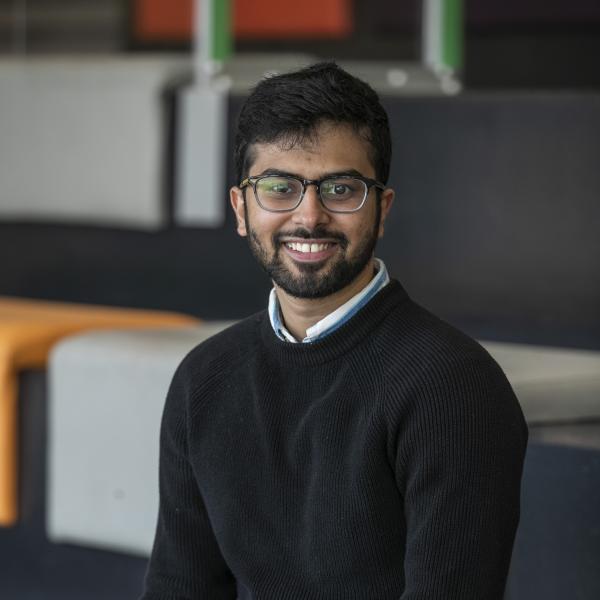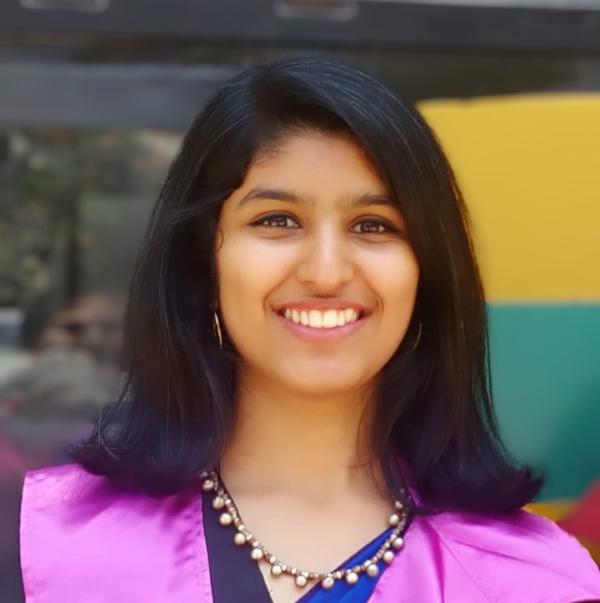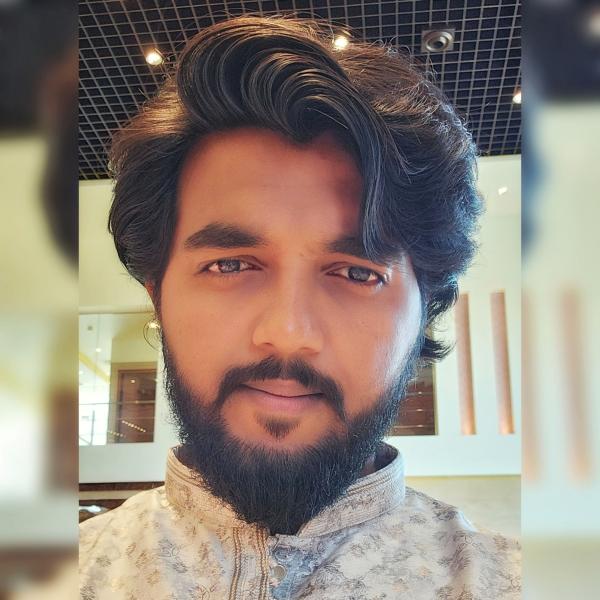Overview
Introduction
The MSc in Computing offers a choice of Majors, designed to equip graduates with a range of cutting-edge skills, enabling them to produce high-quality software and systems that deliver solutions to business and the economy.
Natural Language Processing (Full Time Only)
Natural Language Processing (NLP) combines computer science, linguistics and artificial intelligence. The aim of NLP is to develop computer programs with the ability to understand and produce text, as demonstrated in recent chatbots like ChatGPT, LaMDA, and BARD. NLP is an exciting field, because it has the potential to transform the way we interact with machines and each other, and to make our lives easier and more efficient. In cutting-edge research, large language models like the one at the heart of ChatGPT are even beginning to be used for increasingly general AI system development.
Natural Language Processing specialists are in high demand. They are needed to develop and improve technologies such as text classifiers, chatbots, virtual assistants, and language translation systems, which are used by many industries, including e-commerce, healthcare, finance, and more. With the increasing amount of data being generated, the ability to process and understand human language has become crucial for many businesses to make informed decisions. As a result, there is a shortage of skilled NLP professionals, and companies pay highly competitive salaries to attract talent in this field.
This is the first Natural Language Processing master’s degree in Ireland. It has been developed by world-leading academics working in NLP, and is taught by a team of experts from a diverse range of computer science backgrounds including natural language processing, data science, artificial intelligence, and machine learning. An expert panel of industry NLP professionals will deliver a series of guest lectures and engage in practicum supervision. Taught intensively over nine months and building on your background in computer science, this master’s will equip you with the skills you need for a successful career in this fast-growing field.
Data Analytics (Full Time and Part Time)
This exciting new Major, delivered in conjunction with leading industry players, builds on the School of Computing's expertise and its involvement with Insight, Science Foundation Ireland's Centre for Data Analytics and ADAPT, the centre for new Human Centric AI techniques. Technologies such as the internet, sensor nets, social media and cloud computing are generating vast amounts of data. To say we are drowning in information is an understatement. Yet in this vast amount of raw data, there are gems of knowledge that can be used to improve processes and generate value. This Major provides students with a deep understanding of the issues, techniques and tools to examine large amounts of raw data in order to extract meaningful conclusions from the information these contain.
Artificial Intelligence (Full Time Only)
There is a strong demand for graduates with the highly specialised multi-disciplinary skills that are required in AI, both as practitioners in the development of AI applications and as researchers into the advanced capabilities required for the creation of next-generation AI systems. This Major is designed to meet this educational need, by providing a balanced programme of instruction across a range of relevant areas.
Secure Software Engineering (Full Time and Part Time)
In this modern age of increased data usage and ubiquitous computing the security of software is more important than ever. This updated and revised MSc. Major in Secure Software Engineering builds a firm base of advanced software engineering skills and emphasises security from start to finish. It will be appropriate for all those tasked with building and researching secure software systems.
Please Note: Part time lectures are scheduled between 4-7pm two evenings a week
DCU People

The MSc In Natural Language Processing course at DCU is designed to equip students with the skills needed to develop computer programs that can understand and produce natural language the
Read more about Yalemisew M. Abgaz

This course helped me improve my software engineering skills and focused on teaching students essential security and software development skills.
Read more about Ankit Champaneria

Embarking on the MSc in Data Analytics at Dublin City University (DCU) has been a transformative journey for me, driven by a profound curiosity about Data Analytics.
Read more about Aditi Bhat

Embarking on Dublin City University's AI master's was a strategic choice driven by its stellar reputation and a curriculum that promised depth across various AI domains.
Read more about Pranay Manjunath
Careers & Further Options
Careers
Careers
The MSc in Computing aims to help meet the demand from industry for recruitment of personnel with significant exposure to relevant, advanced topics in computing. This programme is suitable for both experienced professionals and recent graduates. It enables software professionals with a number of years' experience to improve proficiency across a range of key disciplines in the field and to update skills beyond the narrow remit of training courses. It also supports recent graduates of computing and cognate disciplines to gain specialised knowledge and skills for higher-level industry entry at an early stage in their careers.
The focused nature of the majors on our MSc in Computing will ensure that you are in a pole position to gain employment in a wide range of jobs in Ireland and overseas. Graduates of this course have gained employment as a:
- Software Engineer
- Computer Programmer
- IT Project Analyst
- Performance Engineer
- Python/Java Developer
- Web Applications Developer
- Business Analyst
- Technical Analyst
- Technical Consultant
- Data Analyst
Our graduates have gone on to successful careers in leading companies including Google, Facebook, Hubspot, Intel, Apple, Amazon, Microsoft and much more.
Others have progressed to PhD research and gained further advancement and recognition.
For more information on DCU Careers click here.
Entry Requirements
• For entry onto this programme, candidates must hold, a second class honours degree or higher in Computer Science, Computing or Computer Applications.
• International candidates who are non-native speakers of English must satisfy the University of their competency in the English language. More information about DCU's English language requirements can be found here.
• Recognition of Prior Learning (RPL) applicants are required to submit a cover letter along with their application under the Transcripts section of the portal, affirming their intent to apply for RPL. For more information on RPL see here.
Please note if you are a non EU student and require a study visa, you are not eligible to apply for part-time programmes as study visas are only granted for full-time programmes.
Programme Structure
About this course
The strong practical focus of the programme culminates in a project practicum, carried out over the summer months. Typically, students will develop a prototype software system in their Major area that targets a real-world problem. They may also analyse processes or techniques, and propose and evaluate alternatives. Most projects are individual but, exceptionally, may be carried out as part of a team.
Students may also be sponsored by external clients or develop their own ideas. Typically, projects commence with a feasibility study, followed by the creation of a project plan and development of a software application or rigorous theoretical analysis.
Over the duration of the programme, students will develop employment-enhancing skills across a number of key areas. These include:
- Enhancement of proven ability to engineer software
- Improvement of knowledge of operating systems and networks
- Development of strong, team-based skills, developed through significant project work during the course
- Enhanced communication skills through scheduled presentations to lecturers and peers
- Improved understanding of the business and social context of their work and awareness of new directions
- Development of research skills to enable contribution of novel ideas, methods and tools to new challenges in their professional careers.
Please Note: Part time lectures are scheduled between 4-7pm two evenings a week
Natural Language Processing
- Foundations of Natural Language Processing
- Introduction to Machine Learning
- Professional & Research Practice
- Human Factors in NLP
- Deep Learning for Natural Language Processing
- Advanced Machine Learning
- Data Analytics & Data Mining
- Machine Translation (Elective)
- Mathematical Methods/Computational Science (Elective)
(all of the above are 7.5 ECTS each)
- NLP Practicum (30 ECTS)
Data Analytics
- Professional & Research Practice
- Statistical Data Analysis
- Cloud Technologies
- Data Management and Visualisation
- Mathematical Methods/Computational Science
- Artificial Intelligence, Information and Information Seeking
- Data Analytics and Data Mining
- Machine Learning
(all of the above are 7.5 ECTS each)
- DA Practicum (30 ECTS)
Artificial Intelligence
- Professional and Research Practice
- Foundations of Artificial Intelligence
- Statistical Data Analysis
- Data Analytics and Data Mining
- Machine Learning
- Artificial Intelligence, Information and Information Seeking
- Data Management and Visualization
- Statistical Machine Translation (Elective)
- Mechanics of Search (Elective)
(all of the above are 7.5 ECTS each)
- AI Practicum (30 ECTS)
Secure Software Engineering
- Professional & Research Practice
- System Software
- Secure Programming
- Cryptography and Number Theory
- Formal Programming
- Concurrent Programming
- Software Process Quality
- Network Security
(all of the above are 7.5 ECTS each)
- SSE Practicum (30 ECTS)
Fees and Funding
Fees
Faculty of Engineering & Computing International Scholarship
This scholarship is available for Non-EU applicants who have received an offer to study on eligible postgraduate programmes in the Faculty of Engineering and Computing. Successful recipients will receive a €5,900 fee reduction on the full-time 2025–2026 Non-EU Tuition fee.
How To Apply
To apply for this programme:
All applicants should apply here.
Here's a quick step by step guide if you need help with your application:
• Please submit certified academic transcripts for all years of study at college or university in original language, with certified English translations.
• Where an applicant is in their final year of their undergraduate degree, please submit certified transcripts for all years completed to date.
Programming Language Experience - Please upload a statement about your experience with a programming language. You should provide an example of an occasion when you wrote a piece of code, how you approached the task and what the code delivered. Please also include a sample of your own code.
• If applicable, evidence of competence in the English language as per DCU entry requirements. Please see link http://www.dcu.ie/registry/english.shtml
Application Deadlines
Applications will be accepted on a rolling basis until the programme is full or until the following dates:
- EU Applications are open until 30th August 2025.
- Non EU Applications are now closed for this programme. It is advised to apply for an alternative programme.
Note applicants who require a study visa for the purposes of studying at DCU, are advised to apply as early as possible.
Application Queries
For EU applicant queries, please visit https://www.dcu.ie/registry/eu-postgraduate-taught-admissions or email postgraduateadmissions@dcu.ie
For non EU applicant queries, please visit https://www.dcu.ie/registry/international-admissions-undergraduate-and-postgraduate or email internationaladmissions@dcu.ie
Commencement of Programme
The programme commences in September 2025.
Life On Campus
At DCU, our students can expect a unique campus experience. We are known for our excellent teaching and learning facilities, our active clubs and societies, and our great social and sporting facilities. All this makes DCU an exciting place to be.
DCU has three academic campuses; Glasnevin, St. Patrick’s and All Hallows (both in Drumcondra), all close to Dublin City centre.
They can be reached by public transport, Dublin Bus and Bus Éireann, with our Drumcondra campuses a ten minute walk from Drumcondra Train Station. Glasnevin is a 20 minute walk from St Patrick’s and All Hallows. They are also linked by Dublin Bus.
Each campus has a library (O’Reilly, Cregan and Woodlock Hall), study spaces, restaurants, and on-campus residencies. There are sports facilities on Glasnevin and St. Patrick’s, and there is a dedicated sports campus, St Claire’s, located near Glasnevin on the Ballymun Road.
DCU’s 19,000 students have access to exceptional teaching and learning facilities across our three academic campuses.
These include modern learning theatres, research centres, a new media and TV studio, radio/podcast studios, computer suites and advanced labs in the areas of Languages, Engineering, Physics, Chemistry and Biotechnology, as well as a Sports Performance centre and a training hospital ward. In 2021, we opened our first virtual reality ‘Leadership Lab’, which is located in our Business School.
We continue to improve and update our facilities. For example, construction of a new world-class STEM facility is underway on the Glasnevin campus. With capacity for an extra 3,000 STEM students, this facility will advance DCU’s international reputation for excellence in science and health, computing and engineering disciplines.
Studying in DCU isn’t just about course work. The university is rich in student life and activities.
There are more than 140 clubs and societies for students in DCU, with ‘Clubs & Socs’ days taking place on both the Glasnevin and Drumcondra campuses at the start of the academic year. They span everything from rugby to rock climbing, anime to jazz.
For many students, sport is an important part of the DCU experience. DCU’s Sports Complex boasts a 25 metre swimming pool, fitness centre gym, all-weather pitches and squash courts, as well as soccer, GAA and rugby pitches. DCU Dóchas Éireann, the university’s GAA club, is the largest third level Gaelic Games club in the country. Meanwhile, DCU Athletics has been Ireland’s highest achieving university club for many years. And DCU has dozens of other clubs to get involved in, from Archery to Weightlifting.
The Glasnevin campus is home to our purpose built, state-of-the-art student centre, The U, which serves the needs of a rapidly growing student body. Here, you will find the Student Leadership and Lifeskills Centre, performing arts and cultural spaces for students and the wider community, and the Entrepreneurship and Innovation Hub. Also located on our Glasnevin campus is The Helix, our renowned performing arts centre.
On our St Patrick’s campus, we have the Java Student Hub, a vibrant, warm and welcoming space where students can meet for coffee, play music, use the projector to watch events, or just relax. The walls of the Java Hub were designed based on the cultural history of St Patrick’s Campus, including the special references to the notable sporting history and history of the arts.
We have a number of academic, professional and social supports for students.
Student Advice & Learning Skills Centre - Offers a wide range of supports and services to students and advice
The Writing Centre - drop-in writing workshops for students through the academic year
Maths Learning Centre - provides maths support for students of all ability levels with maths modules
Student Learning - facilitate the transition from passive to active learning for students at DCU, by teaching study skills, nurturing critical thinking and building student confidence.
Careers work with students to help them on their professional journey into graduate employment.
Our student support team offers a comprehensive support programme, helping students make that all important transition into university life and focusing on building confidence and skills which are key to success at third level.

DCU Glasnevin Campus
FAQs
Is DCU all one campus?
DCU is a multi campus university - the Glasnevin, St Patrick's and All Hallows campuses. The St Patrick's campus is where the Education courses are taught and some of the subjects from the BA Joint Honours degree. There is a 20-25 minute walk between the campuses but there are buses and bikes available to go between them also.
Click here to see maps of all of our campuses
If I'm studying on the St Patrick's campus, can I use the library and sports centre on the Glasnevin campus?
Yes, all facilities such as sports and accommodation are open for all DCU students to avail of.
Are there libraries in DCU and if they have wifi and work stations?
We have a brand new state of the art four floor library on our St. Patrick's Campus which complements the existing library on the Glasnevin campus. There is free wifi, work stations as well as desktop computers.
Does DCU provide accommodation?
DCU does have on-campus accommodation for undergraduate and postgraduate students, and you can find out more and apply via the Accommodation Office webpage.

